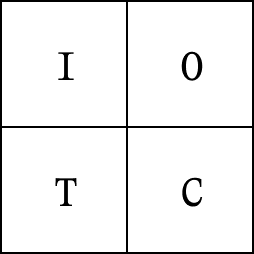The Institute of the Cosmos is pleased to present the Cosmic Bulletin 2021, edited by Hallie Ayres, with contributions from Mayana Redin, Miriam Hillawi Abraham & Nasra Abdullahi, Kateryna Iakovlenko, Ali Van, Natalia Delone, Marcus Hurwitz, Sanja Särman, Thotti, Nikita Kadan & Yuri Leiderman, Alessandra Franetovich, Anna Gorskaya, and Jyoti Arvey.
Now in its second year, the Cosmic Bulletin is an online publication influenced by the philosophy of cosmism and its historical and contemporary manifestations. The Cosmic Bulletin seeks to propagate a series of radical imaginaries informed by a multitude of knowledge systems and sustained by collective experimentation. The Institute of the Cosmos is a collective research project initiated by Arseny Zhilyaev and Anton Vidokle. The Cosmic Bulletin is the publishing platform of the Institute. The inaugural 2020 edition of the Bulletin, edited by Marina Simakova, can be found here.
Cosmic Bulletin 2021’s offerings engage an ever-expanding universalism by way of content and approach: artist Jyoti Arvey summons Lenin’s embalmed body to question historic necessity; Kateryna Iakovlenko, Nikita Kadan, and Yuri Leiderman consider permutations of Ukrainian cosmism, tracing its divergences from the Russian model; and bodies and trees grow gradually together as circadian rhythms melt into cosmic energy within a digitized iteration of a scroll by Ali Van. Mayana Redin and Natalia Delone reflect on human intervention in the natural world: Redin utilizes the cadaver of Soviet cosmonaut Vladimir Komarov to illustrate the limits of artifactuality, and Delone outlines a future in which technological advances are synchronized with human reason, spirit, and emotion.
A number of authors carry forward the Soviet mantle through investigations of art, film, and literature. Marcus Hurwitz delineates the Suprematist translation of cosmism’s Common Task as a radical transformation of the architecture of the universe, while Alessandra Franetovich turns to science fiction filmmaker Konstantin Lopushansky for an expanded range of possibilities for the museum’s role during eras of global crisis. Thotti discerns elements of Sophiology within literature to elucidate our ceaseless yearning for a personified Wisdom of God. Standing over Russian artist Vasiliy Chekrygin’s grave—recently discovered by priest and ethnographer Andrei Dudarev—Anna Gorskaya reflects on the nature of Nikolai Fedorov’s museum of resurrection and its endlessly expanding catalog of memories.
We venture into the nautical by way of fiction: Sanja Särman recounts the tale of a sailor overcome by the tyrannical allure of a captain who boasts emerald eyes. The shipmates voyage across the Sea of Poverty and the Shoal of Oblivion while flittering between death and immortality in a spiritual probe of the material extent of tenderness. In notes on the foundations of their speculative fiction practice, Miriam Hillawi Abraham and Nasra Abdullahi utilize the astrolabe—an ancient device central to land and sea navigation—to illustrate a cosmology that embraces destabilization as a means of generating liberatory futures.
Taken as a whole, this issue of the Cosmic Bulletin challenges spatio-temporal restrictions and casts out to sea existing world orders, churning at the mercy of ever-shifting tides. These essays circumnavigate pre- and post-revolutionary moments, all the while experimenting with strategies of meeting the perennial revolutions of everyday life. But this is merely the introduction; now we must continue, as always, to read.
—Hallie Ayres, Editor



